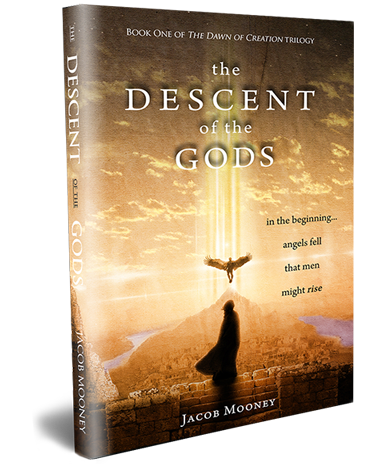Clement of Alexandria was an influential early Christian theologian and philosopher who made significant contributions to Christian thought in the second half of the second century AD. His works, which were thoroughly Greek, referenced the ancient story of angels leaving heaven and revealing secrets to women, as told in Genesis 6.
Clement’s Platonic Philosophy
Clement’s philosophy was fundamentally Platonic, and he was convinced that the Greek’s religion had been formed based on the pre-existing Jewish religion and stories.
Clement’s Beliefs about the Angels in Genesis 6
For the mind is carried away by pleasure; and the unsullied principle of reason, when not instructed by the Word, slides down into licentiousness, and gets a fall as the due reward of its transgression.
An example of this are the angels, who renounced the beauty of God for a beauty which fades, and so fell from heaven to earth.
The Paedagogus, Book 3
—-
And we showed in the first Miscellany that the philosophers of the Greeks are called thieves, inasmuch as they have taken without acknowledgement their principal dogmas from Moses and the prophets.
To which also we shall add, that the angels who had obtained the superior rank, having sunk into pleasures, told to the women the secrets which had come to their knowledge; while the rest of the angels concealed them, or rather, kept them against the coming of the Lord.
The Stromata, or Miscellanies Book 5
Clement believed that the angels that sinned in Genesis 6 were influenced by pleasure and fell from heaven to earth. He considered them as an example of what happens when our minds are not held in check by scripture.
According to Clement, high-ranking angels who had been lured into lustful pleasures told women forbidden secrets. While in contrast, the rest of the angels kept these secrets hidden, waiting for the coming of the Lord.
Clement’s Views on Greek Philosophy
Clement was critical of Greek philosophy, arguing that its major dogmas were taken without acknowledgment from Moses and the prophets. He considered Greek philosophers as thieves, taking credit for ideas that originated from the Jews.
Through his works, Clement encouraged the Greeks to adopt Christianity and attempted to demonstrate the superiority of Christian ethics and values.
Further Reading:
Angels and Principalities has a chapter dedicated to analysing Clement’s passages about the angels who sinned.






